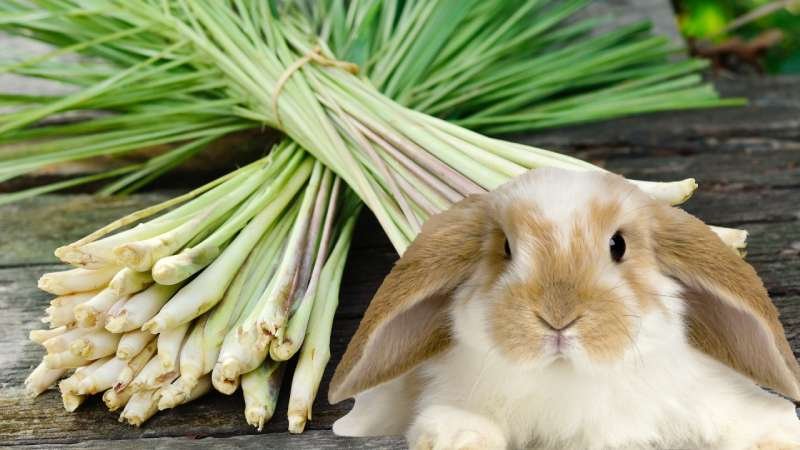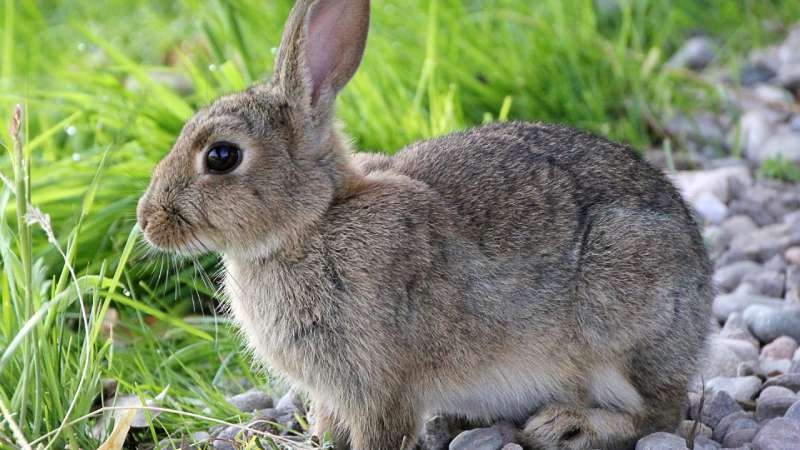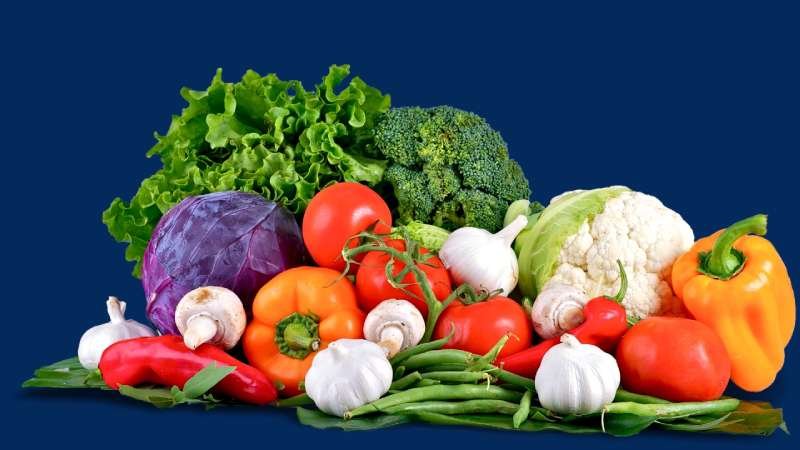Lemongrass is commonly used in various foods by humans. Every time a question arises: Do rabbits eat lemongrass? To answer this, we investigated the nutrient needs of rabbits and introduced lemongrass to find out how they react when feeding this plant.
Rabbits are unique and known for their loveable appearance and kind nature. They are herbivorous and have particular dietary needs for their overall health. A good understanding of their nutritional needs is good for rabbit care.
We will explore the dietary needs of rabbit health and also discuss their balanced diet. When we discuss rabbit nutrition, our main focus will be on lemongrass, which is famous for its fragrant and flavorful nature.
Nutritional Value Of Lemongrass For Your Rabbits
Lemongrass has so many nutritional benefits for rabbits. It has essential vitamins like A and C which helps in overall health development. The presence of minerals like potassium and calcium in lemongrass helps in muscle growth.
It contains a high amount of fiber, which helps to build the digestive system health. And prevent the health problems like stasis. Always provide less amount of lemongrass to your rabbits to prevent health problems.
Do Rabbits Eat Lemongrass?
Rabbits are herbivorous and can eat lemongrass. Lemongrass should be a good treat for them as long as you do not overfeed them. It is full of essential nutrients that can be good when included in their diet.
It contains natural acidic components which may cause rabbits health. Lemongrass can be a healthy addition, always give them in moderation, and intake of a large amount of acidic foods is not good for their overall health.
Disadvantages of eating lemongrass
Lemongrass not only gives health benefits, but if consumed in large amounts may cause various health problems.it is only safe when given in moderation. There are some disadvantages given below:
Digestive Issues
Rabbit’s digestive system can not handle high amounts of fiber, although lemongrass like many plants contains a high amount of fiber content. Intake Large amounts of fiber may lead to digestive problems in rabbits.
Oxalates and Calcium Absorption
This plant contains oxalates and it binds with calcium which may cause the formation of kidney stones in rabbits. If rabbits had calcium-related problems before, it is good to see consumption of oxalate intake.
Potential for Allergic Reactions
Like humans, rabbits also have some allergies to various foods. Rabbits may get such reactions as gastrointestinal discomfort or allergic to lemongrass. If you see any reaction, immediately consult with a vet.
High Protein Content
It contains a high level of protein content, which is not good for rabbits if taken in large amounts. It may cause kidney issues which is not good for rabbits. Always give lemongrass in small amounts.
Flavor Preferences
When it comes to flavor rabbits have great independent preference. Not all bunnies enjoy the flavor of lemon grass many rabbits do not eat it on the first attempt. When you introduce a new food to your rabbits, remember to start with low amounts.
Pesticide Residue
If you offer lemongrass to your rabbit, without washing it, it may cause health issues due to the presence of pesticides or other chemical substances. So, provide them with clean or pesticide-free lemongrass to avoid health issues.
Remember, when you introduce new foods to your rabbits, give them gradually and in low amounts. Also, monitor their expressions while eating lemon grass. If you see any reaction, consult with the veterinarian.
Introducing Lemongrass to Your Rabbit
Introduce lemongrass to your rabbits in small amounts and gradually. Large amounts may cause health issues. Here are some steps that will help you find the right way:
Start Gradually
Start lemongrass in small amounts and slowly in your rabbit diet. Feed them lemongrass and observe how they react. If there is no reaction present, you can increase the amount over time.
Monitor Your Rabbit’s Reaction
Look after your rabbit’s digestive health after giving them lemongrass. Observe them closely, if you see any sign of diarrhea or other inappropriate behavior or any negative reactions, immediately stop feeding them lemongrass.
Choose Fresh, Organic Lemongrass
Always choose fresh lemongrass to lower the risks of pesticides. Wash it properly to remove extra dirt and pesticides, before feeding them.
Cut Into Small, Digestible Pieces
Cut into small pieces, this makes it easier for your rabbit to digest properly. And also helps to prevent choking.
Incorporate with Hay and Pellets
Mix the lemongrass with your rabbits’ regular food like with hay and pellets, to ensure that lemongrass is a part of a balanced diet. Also, Ensure that your rabbit still gets essential nutrients.
Observe Hydration
Your rabbit needs to stay hydrated. Lemongrass has moisture content and provides fresh water at all times. While offering them any new food.
Rotate with Other Safe Vegetables
Yes, lemongrass can be a flavorful addition but it’s important to rotate it with other safe and healthy vegetables to provide them with a balanced diet. This reduces the overconsumption of nutrients in rabbit’s diet.
Consult Your Veterinarian
It is a good idea, to consult with a veterinarian before introducing any new foods into your rabbit’s diet. They will suggest your best diet according to your rabbit’s health.
Not all rabbits have the same taste when choosing food. If you observe any unusual behavior in your rabbit’s diet, consult with the veterinarian immediately. Remember, when introducing any new food, moderation is the key.
Other Rabbit-Safe Vegetables
If your furry friend does not like to eat lemongrass, there are some other good options that you can offer. These are full of nutrients which play a vital role in their health.
- Leafy Greens like Kale Romaine Lettuce Spinach (in moderation) Swiss Chard, Bok Choy, etc.
- Herbs like Cilantro, Basil, Parsley, Mint, Dill, etc
- Root Vegetables like Carrots (in moderation due to sugar content), Radishes, Beets (in moderation), etc
Conclusion: Do Rabbits Eat Lemongrass
In conclusion, the answer to the question: do rabbits eat lemongrass? Yes, they can safely eat lemongrass, while moderation is the key. Lemongrass is a good addition to rabbit’s diet, it gives many health benefits. If rabbits eat it in large amounts it causes health problems like digestion problems and kidney stone issues. Start with low quantities and gradually, to avoid health issues, also monitor your rabbits while eating lemongrass. If you see any reaction immediately consult with a vet.
FAQs About Do Rabbits Eat Lemongrass
Can rabbits eat lemongrass?
Yes, rabbits can eat lemongrass but in moderation. Lemongrass is generally a safe and flavorful diet. However, it’s important to introduce it gradually to monitor for any digestive issues. Some rabbits may have individual preferences, so observing their reactions is key.
Does Lemongrass Repel Rabbits?
While lemongrass is not known to be a strong repellent for rabbits, it does contain citronella, which has natural insect-repelling properties. Some people use lemongrass or citronella-scented products to deter pests, including rabbits, from specific areas. However, the effectiveness may vary, and it’s not a foolproof method. Physical barriers and other repellents may be more reliable for keeping rabbits away from certain areas. Experimentation and observation are essential to determine the effectiveness of lemongrass as a deterrent in a specific context.
What are the benefits of feeding lemongrass to rabbits?
Feeding lemongrass to rabbits can offer some benefits. Lemongrass contains essential nutrients like vitamins and minerals that contribute to a rabbit’s health. Its high fiber content supports digestive health. However, moderation is key to avoiding potential digestive issues.
Will Lemongrass Give My Rabbit Diarrhea?
While lemongrass is generally safe for rabbits, an abrupt introduction or overconsumption can potentially lead to digestive issues, including diarrhea. The high fiber content in lemongrass might affect some rabbits differently. To avoid such problems, introduce lemongrass gradually into your rabbit’s diet, monitor their response closely, and ensure it’s offered in moderation. If diarrhea or any other digestive problems occur immediately consult with the vet.
How should I introduce lemongrass to my rabbit’s diet?
Introduce lemongrass to your rabbit’s diet gradually. Offering small, digestible pieces to your rabbits. Monitor for any signs of digestive issues or reactions. Lemongrass can be mixed with your rabbit’s regular hay or pellets to make the diet balanced. Ensure that the lemongrass is fresh, organic, and thoroughly washed to minimize the risk of pesticide residues. If your rabbit shows any health issues consult with the veterinarian.
Can Baby Rabbits Eat Lemongrass?
Avoid giving lemongrass to baby rabbits due to their sensitive digestive systems. Focus on a balanced diet with mother’s milk or a suitable replacement formula. As they grow and transition to solids, introduce new foods gradually. Consult a vet for guidance based on age and health status.
Should I consult a vet before giving lemongrass to my rabbit?
Yes, it’s advisable to consult with a veterinarian before introducing lemongrass or any new food to your rabbit’s diet. Veterinarians can provide personalized advice based on your rabbit’s health, dietary needs, and any specific considerations.





